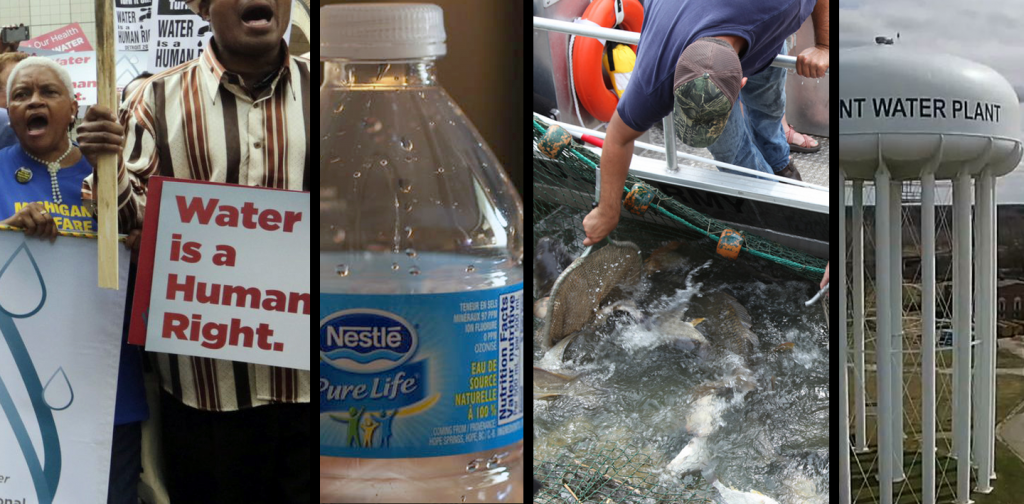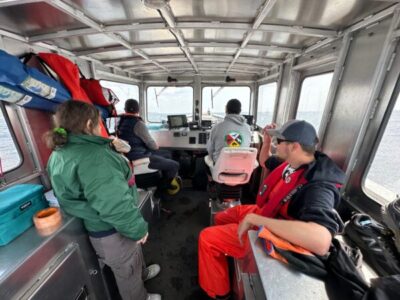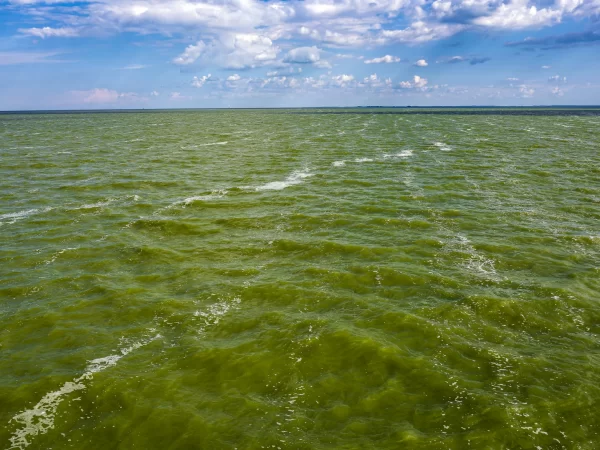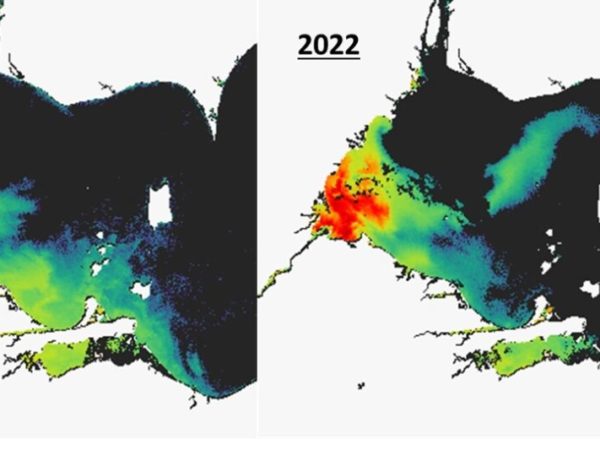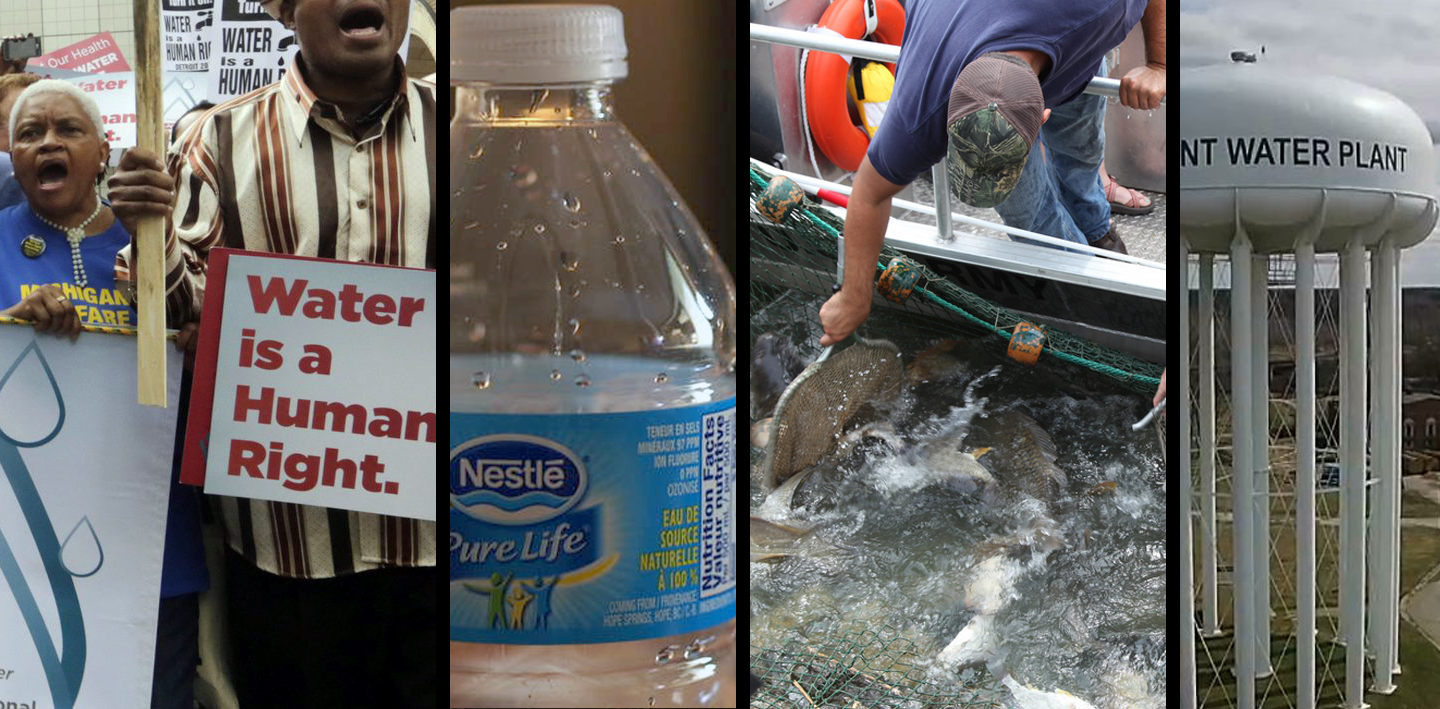
Access to clean, affordable water for all top of mind for experts
A Great Lakes Now canvass of regional water executives revealed that water equity — access to clean, safe and affordable drinking water for all – is one of their primary concerns for 2018.
The finding comes on the heels of the Flint water crisis, shutoffs in Detroit, Nestle’s application for more water for bottled water and the omnipresent threat from toxic algae to Toledo’s water supply.
One contributor, national water consultant Lynn Broaddus, said she wouldn’t be surprised to see a water-related health event in 2018.
Beneath the radar
We told the contributors that issues like Asian carp and the Trump administration’s Great Lakes policies would be on everyone’s watch list.
We asked the panel to focus on issues that aren’t on everyone’s radar; that may be more important to the average concerned citizen than the Great Lakes intelligentsia of agencies, commissions and nonprofits.
Here are the responses.
Rachel Havrelock- University of Illinois – Chicago, Freshwater Lab
Rachel Havrelock’s Great Lakes perspective is informed by teaching in a diverse city of nearly three million people on a campus a mile from Lake Michigan.
She sees a need in 2018 to focus on the Water Belt economy. “The Great Lakes region needs to lead the world with water technology and manufacture,” she says.
She is “looking to scale up water reuse, explore innovative means of water delivery to replace dangerous lead pipes and to think about food and water production as sustaining enterprises that cause minimal harm to the water source.”
Havrelock wants a check on “water withdrawals by corporations like Nestle.” She says they take the water “nearly for free then leave us with mountains and pits of plastic bottles.”
She thinks it’s time to reduce dependence on the federal government.
“We can’t necessarily look to agencies at the national level to lead in the governance of our lakes,” Havrelock says. “We should be developing local and regional means of governing our shared water.”
Havrelock is part of an emerging contingent of environmental professionals who are moving away from technocratic solutions to problems to focus on humanistic ones.
Nick Schroeck- Wayne State University Law
Nick Schroeck’s work can take him from a legal lecture hall to the deck of an eco-tour boat on the Detroit River, where he explains why some piles of production waste are legal and others are not.
Nestle’s water taking and water equity are top of mind for Schroeck.
For 2018 he says how about a “bottled water tax,” and notes that “legislation has been introduced in Michigan” and it’s gaining traction.
He expects a decision on Nestle’s current request for more water to support its bottling operation and says it’s likely that “litigation will follow regardless of the decision.”
Schroeck sees increased focus on drinking water affordability based on price disparities between poor and affluent communities. Declining water sales mean utilities “are getting pinched” and the “current system doesn’t protect the most vulnerable.”
“Something has to give,” he says.
He cites residential water shutoffs in Detroit, the Flint water crisis and recent revelations of disparate water pricing in Chicago to make his case.
Jon Allan – Michigan Office of the Great Lakes
Jon Allan made the leap from corporate executive to de facto CEO of Michigan’s substantial Great Lakes holdings.
That means his portfolio runs the gamut from invasive species to water sustainability to cleaning up legacy toxic sites.
Given Michigan’s exposure to a potential Asian carp invasion it’s no surprise Allan said the issue needs to have a “high and enduring profile.”
Then Allan says “we must shed the Rust Belt image once and for all.”
He wants a focus on the “health of our aquifers in order to manage future demands for clean water” and wants “policy decisions to recognize the future value of clean water.”
Allan has been heavily involved with the federal Great Lakes Restoration Initiative and he asks how to leverage existing momentum as cities transition from “remediating loss and damage to achieving great sustainable value?”
Allan says it will be important to have systems like Blue Accounting to “increase traceability and accountability.”
Cameron Davis- GEI Consultants
Most Great Lakes observers know Cameron Davis from his years leading a nonprofit then at the U.S Environmental Protection Agency overseeing Great Lakes programs during the Obama presidency.
Now in the private sector, Davis still has thoughts on his past responsibilities.
He says “there will be continued attempts to undermine Great Lakes restoration funding but an adequate budget for the U.S. EPA is the key.” Davis says to work, the restoration program needs for the EPA to have the “resources for effective management of these key programs.”
He says “progress and setbacks don’t happen on calendar year basis” and he’s concerned about long-term issues like the impact of a new tax law.
“If the deficit balloons, it will provide new fodder for calls to cut key environmental programs, Davis says. “They’re usually the first to be cut, as we’ve seen when states go through economic hardship.”
In the private sector Davis asks if corporations will collaborate over water as they have on renewable energy.
Noah Hall – Wayne State University Law
Noah Hall’s Great Lakes credentials include providing legal advice on the Great Lakes Compact and being a member of Michigan Attorney General Bill Schuette’s Flint legal team.
Agree with him or not, you can always count on Hall for candor.
Hall agrees with his colleague Nick Schroeck that drinking water affordability, access and safety will be prominent. And he hopes the Great Lakes environmental community will embrace these issues. Hall earlier this year told Great Lakes Now that the environmental community had some “looking in the mirror” to do over its absence on Flint.
He says to Great Lakes environmentalists that “protecting and restoring the Great Lakes would be an empty accomplishment if millions of residents within the watershed cannot get or pay for safe drinking water in their homes.”
Hall is a co-author of the just released book Water Law – “exploring private rights and public interests in freshwater.”
Lynn Broaddus- Broadview Collaborative, National water consultant
Lynn Broaddus’ water work and experience takes her far beyond her Wisconsin and Great Lakes roots.
Building on her years with nonprofits and foundation work, Broaddus now consults on sustainable water management with an emphasis in the water utility sector.
Speaking around the country, when Broaddus sees “water geeks” she expects they’ll be talking about rainwater harvest.
Broaddus says “cities like Los Angeles, San Diego and Austin openly promote rainwater capture.”
In the Great Lakes region, she says the Kresge Foundation is encouraging examination of distributed water services as a resiliency tool – a tool that may reduce storm water pollution and provide water in a less energy-intensive way.
Broaddus expresses a cautionary note for 2018. She says it’s likely that there will be a water-related public health event.
It could be a pipeline break, contamination from animal agriculture, another Flint or something that has yet to be anticipated, according to Broaddus.
She attributes the likelihood to aging infrastructure, a status quo attitude to agriculture and a hands-off regulatory attitude. Think Lake Erie algae blooms and Toledo water crisis for the last two.
“It seems inevitable,” Broaddus says.
Dave Dempsey – Policy adviser, advocate and Great Lakes author
Dave Dempsey has been a policy adviser to a Michigan governor, an advocate and is a prolific Great Lakes author. With that background we shouldn’t be surprised that he began his response to Great Lakes Now with a quote from Abraham Lincoln.
“As our case is new, so we must think anew, and act anew.”
With that, Dempsey asks, “Will the environmental community think and act anew in 2018?”
Dempsey says it’s time to move from a dependence on the federal government for money and to focus on state funding responsibilities.
He echoes the thoughts of his colleagues – Hall, Havrelock and Schroeck – who want more attention given to the less fortunate who can barely afford water and are denied it when they can’t pay their water bills in this water wealthy region.
In early 2017, Dempsey finished a six-year term with the International Joint Commission and is now advising Traverse City based FLOW.
1 Comment
-
You need to come fight the back 40. It a open pit sulfide mine they plan on digging 100 ft away from the Menominee River which flows into the bay of Green Bay.then flow in to Lake Michigan. The wetland permit is the last permit needed. Meeting is set for Jan. 23, 2018. At 6:00 pm. If more information contact Menominee Tribe.


